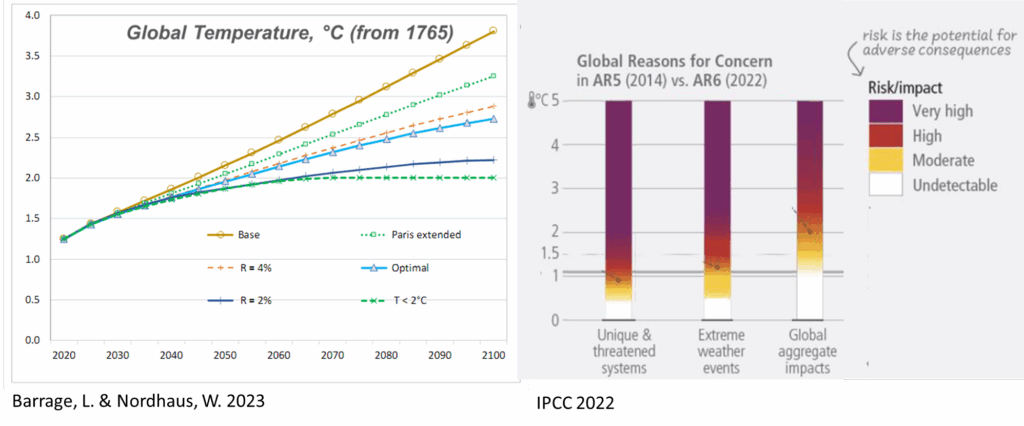Is there an economically optimal level of warming as suggested by economists like Nordhaus and Barrage? How does this align with the various risks stated in the IPCC for even a 1.5°C-scenario? What are the key barriers to effective climate mitigation? In our first panel discussion in spring 2023 we invited David Bresch, Christian Pohl, Tobias Schmidt and Lint Barrage to try and compare technological, insurance, interdisciplinary systemic and economical perspectives on climate change. Our key learnings: First, the perspective of an “economically optimal warming” is flawed as it does not take into account the actual effects of climate change namely, death, loss of livelihood and culture, displacement and collective trauma. Second, international politics and the COPs are mostly about countries’ relations, business and power play while the climate crisis is secondary. Different scientific perspectives (focus on GDP or focus on loss of lives) are instrumentalized by different political agenda – an understanding of the system and how the researcher sets the boundaries is key. Third, we don’t need more innovation – we have most of the technology that we need – but we need to deploy it and for that we need money. The technological transition offers a huge benefit because renewable energy sources are equally distributed among the countries other than fossil fuels. But banks and insurance companies are still hesitant when it comes to financing and insuring renewable energy projects especially in developing and emerging economies.
